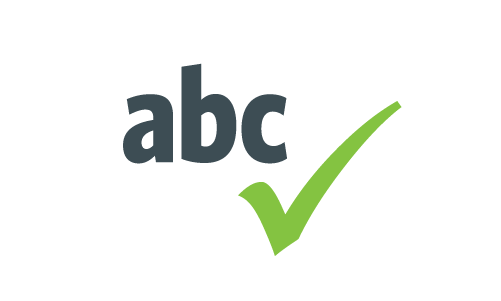
01 Apr Blogging Tips – Editing Is More Important than You Think!
When you start blogging, in no time you will come to the realization that you are doing what you love – you are contributing to the community by sharing your experiences, people are reading what you have to say, they are discussing your topics and thoughts and everything is, in one word, peachy. But, when the community of people who are following you on a regular basis starts expanding rapidly, not only do you have to come up with more material, but you also have to cope with maintaining the quality of your work – and this can be really tough. Also, when people hear about how good you are at what you are doing, they will certainly want to hire you to write something for them and it is only a matter of time before other writers on the web start submitting articles to your blog.
All this leaves you with a ton of content that you will have to prepare. For this reason (and many other, fairly obvious reasons), expanding bloggers started hiring teams of writers and editors, so that they can to outsource a part of their work and focus on expanding even further.
As you have probably learned by now, only original, informative and well written content is what counts on the web. Spammy, mediocre texts are a thing of the past – an average internet user needs about half-a-second to determine whether the content presented to him or her is spam or not and, just by skimming through the text, they can check whether or not they will find what they were looking for. Also, Google will not lead people to poor content and spam, that’s for sure.
So, to cut the long story short, you (and your team of editors) will have to go through many different texts in order to make sure that they are ready for posting. Once they are live, you will have no time to run through them again – trust me on that. Therefore, in the following text, we have prepared a list of the most common errors that writers (both native and foreign English speakers) tend to make:
Punctuation
A piece of text can never be the same as the spoken word. While reading your text, the reader is creating his or her own interpretation of your words. Each and every one of us has this little voice inside our heads and, when we read, we are actually uttering sentences in our head (however silly this all may seem, you do understand what I’m talking about). Without proper punctuation, your sentences tend to become ambiguous and unclear and this is not something you want as a blogger. Questions should always end with a question mark. If you think a sentence is really important, put an exclamation mark at the end. Also, in the English language, there is the standard – subject, predicate, object, adverbial – order. If your sentence (we are considering simple sentences now, not complex sentences) follows this order, no commas are necessary. However, no one speaks like that, right?
So, your sentence begins with a subject, followed by a verb and so on – “John bought a bike today.” – no commas. If you want to say – “Today, John bought a bike.” – you should put a comma after the adverb, since the regular word order has been “compromised”.
Microsoft Word has this covered. Keep in mind though that it can go “berserk” sometimes and confuse you when you are writing, so you cannot rely on it that much, but whenever you see a green or a blue underline in Word, check out what it has to say. It’s usually right.
Oh yeah, one other thing – if you open brackets somewhere in the text, make sure you close them.
Spelling
 Spelling is not that big of an issue anymore, since almost every piece of writing software has a well functioning spell-check system. However, there are words that can go unnoticed. For example, while typing, instead of typing the word “from”, you can easily type “form” and in some cases, the spelling and grammar check will let this slide. There are many other examples. YourDictionary.com has a great list you should certainly check out.
Spelling is not that big of an issue anymore, since almost every piece of writing software has a well functioning spell-check system. However, there are words that can go unnoticed. For example, while typing, instead of typing the word “from”, you can easily type “form” and in some cases, the spelling and grammar check will let this slide. There are many other examples. YourDictionary.com has a great list you should certainly check out.
Google Docs is also pretty excellent when it comes to this. They don’t have a green underline though – they always mark a mistake in red – but, they are still under development and the punctuation part is not that well covered in Google Docs compared to Word, but when it comes to semantics, they are reliable. My advice is to run every text through Word’s spelling and grammar check and, afterwards, upload the document to Google and convert it to Google Docs format. If there are no mistakes, you are probably good to go.
Finally, spelling differs from one English speaking country to another. The main thing here is consistency. If you started writing with British spelling, continue writing with British spelling. Do not write one article with the word “advertise” spelled like that and the next one with “advertize”. Some of your readers will notice that and, although it is certainly not that big of a mistake, if you strive for perfection, you should pay attention.
Tone
 After “fame and glory” hits them in the head, bloggers start becoming sloppy. Their texts are still neat and well written, but the tone tends to change as they progress. They start treating their readers as not that intelligent, to put it bluntly, and somehow they start stuffing their text with sentences that really have no meaning when you think about it. We will call these sentences “fillers” and each and every one of you who has continued reading this text up until here knows what I’m talking about. You are not the problem here, your writers are.
After “fame and glory” hits them in the head, bloggers start becoming sloppy. Their texts are still neat and well written, but the tone tends to change as they progress. They start treating their readers as not that intelligent, to put it bluntly, and somehow they start stuffing their text with sentences that really have no meaning when you think about it. We will call these sentences “fillers” and each and every one of you who has continued reading this text up until here knows what I’m talking about. You are not the problem here, your writers are.
The best way for me to explain to my writers what I want, when it comes to tone, is the following. Each and every serious and informative blog post should be written as if you are explaining something to your friend’s dad, but a cool dad. Do you see where I’m going with this?
You don’t want to be too formal, since you will lose your average readers, but you also don’t want to go for a general and informal tone, since you will lose your serious readers. The “magic happens” somewhere in between formal and informal and you, unfortunately, have to find that thin line for yourself.
The final reading
 First of all, each text should be checked 3 times. It should be checked by the writer when it is finished. Next, it should be checked by the editor and finally, it should be checked by you, right before you click the “Publish” button. My advice is to simply read each text out loud before you post. That way, you can be sure that it sounds good. Also, when you read it out loud, someone in your near surroundings might hear something unclear and this can help a lot.
First of all, each text should be checked 3 times. It should be checked by the writer when it is finished. Next, it should be checked by the editor and finally, it should be checked by you, right before you click the “Publish” button. My advice is to simply read each text out loud before you post. That way, you can be sure that it sounds good. Also, when you read it out loud, someone in your near surroundings might hear something unclear and this can help a lot.
The only downside is that, until you find someone who you can trust completely, you will have to be the “final piece of the puzzle”. After all, it will be your name under the text, so you better know what you’re signing, right?
Let’s wrap up
To conclude this article, it is important to state that these little things – commas, brackets, capital letters and so on – are what makes an article excellent. Of course, it has to be well written and it has to have a concept, a head, a body and a tail, but without the little things, it will not be as awesome. Splitting hairs and being a stickler is exactly what you need in this business. So, good luck and, when you are done with your final reading of the text you are about to publish – read it again, just for the fun of it.


